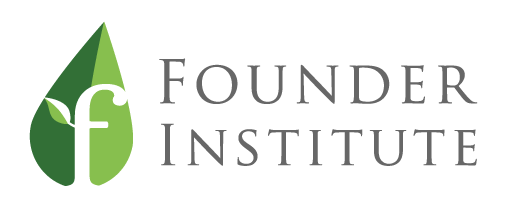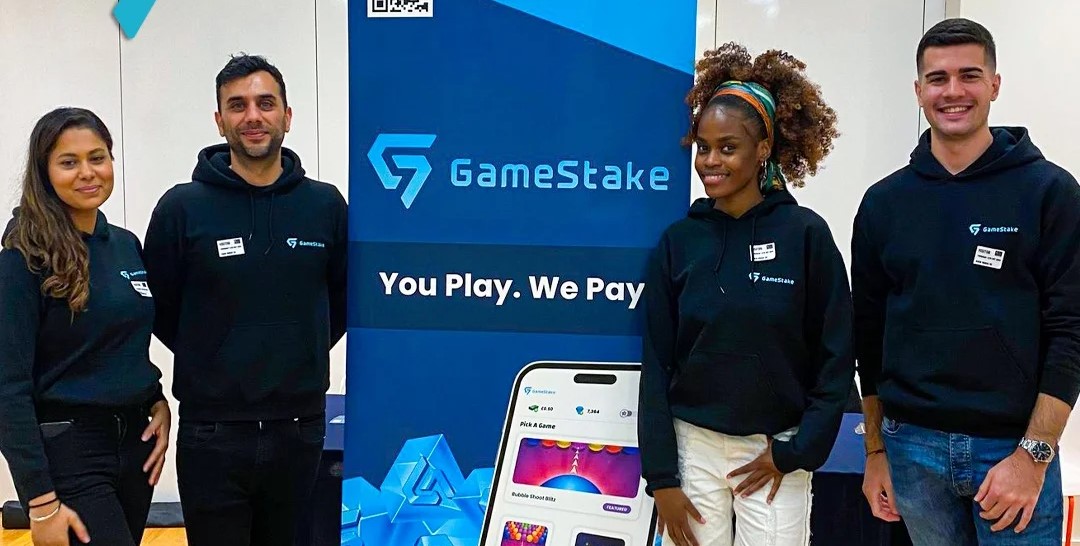Introducing Amit Puri from GameStake Technologies
Q: Could you briefly introduce yourself and your startup?
A: I’m Amit Puri. Based in London, I serve as the CEO and founder of GameStake Technologies. Our core mission is to bridge the gap between consumer and business interests. We achieve this by creating B2C consumer apps, particularly gaming super apps, that are not only engaging but also reward users for their involvement. Looking ahead, we’re planning to develop a B2B product. This product will enable brands to integrate with our apps, thereby gaining direct access to our user base. An essential aspect of our business is the collection of valuable first-party data. Brands can utilize this data to enhance their conversion rates by specifically targeting our users. So, that’s a snapshot of what we do at GameStake Technologies.
Q: What inspired the initial idea for your startup?
A: The concept of GameStake Technologies has evolved significantly since its inception. Initially, the idea was centered around why people couldn’t wager against each other in computer games. This concept then shifted to focus on mobile games, and over time, it continued to refine. The evolution led us to create an all-encompassing gaming super app, which houses a variety of games on a single platform. This transition aimed to enhance user experience and incorporate competitive gaming, but with a twist – it’s skill-based, not gambling. We added a rewarded gaming element, where users earn rewards simply for the time they spend playing games. This pivot was largely driven by customer feedback, our data analysis, and keeping an eye on market trends. That’s how we arrived at where we are today with our gaming super app.
Discovering Founder Institute
Q: How did you come across Founder Institute and decide to join?
A: My journey with Founder Institute began quite randomly with a late-night Google search in 2019. At that point, I was certain about pursuing an entrepreneurial path. I had two ideas in mind: what is now GameStake and another related to a travel marketplace. Searching for ways to get started led me to discover accelerator programs, and that’s how I found Founder Institute. They offered an online test, which I took and scored highly on, though I’m a bit skeptical about the test’s mechanics. After the test, I was encouraged to enroll in their program, with the incentive of a discount due to my test score – a pretty effective sales technique that created a sense of urgency. I enrolled in the winter cohort of 2019-2020, just an hour before my discount expired.
Q: Do you think the test is part of their strategy to engage potential participants?
A: Yes, I believe Founder Institute uses psychological tactics and gamifies the process to attract participants. They employ incremental techniques that subtly nudge you towards believing in the program’s benefits. Initially, I was somewhat naive to these tactics.
Q: Is it true that Founder Institute has a high dropout rate, and there’s no refund if you don’t complete the program?
A: You could get a refund or a portion back if you dropped out early on in the 16-week program, particularly before a crucial 12-week period. Founder Institute operates on a model where you pay for enrollment and, just before graduation, hand over warrants for equity.
Personally, I valued the program for providing a platform to connect with fellow entrepreneurs, which I found extremely beneficial. However, I had reservations about the warrant agreement, especially as I progressed and found the program and its mentors not as valuable as expected. Many mentors didn’t have actual entrepreneurial experience and were more sales-oriented. Despite being advised that the pitch day would bring investment opportunities, I realized that the program didn’t provide the expected support.
My startup raised nearly a million pounds in investment capital independently, without any assistance from Founder Institute. Despite my performance and recognition in the cohort, they failed to facilitate any investor introductions. In my view, they fall short of being a genuine accelerator program, functioning more as a business.
The Application Process for Founder Institute
Q: Can you describe the application process for the Founder Institute?
A: The application process for the Founder Institute was quite extensive and somewhat long-winded. It involved answering a lot of questions, but these were more holistic in nature. The questions delved into my motivations for becoming an entrepreneur, what success would mean for my business, and how I would feel if I couldn’t realize my dreams. Surprisingly, there was less emphasis on the specifics of my business idea, like its modeling or competitive analysis.
Q: Were there any interviews involved in the application process?
A: Interestingly, there were no interviews as part of the application process. It mainly revolved around the test I mentioned earlier. I believe this test is likely available on their website for prospective applicants, designed to gauge their entrepreneurial potential. Most people probably score well on this test and are subsequently encouraged via email to enroll in the program, suggesting that they have a natural knack for entrepreneurship. Following this, the application seems to culminate in filling out a form and making a payment to complete the enrollment.
A Day in the Life at Founder Institute
Q: What was a typical day like in the Founder Institute program? Were there classes, assignments, or workshops?
A: The structure of the Founder Institute program involved weekly sessions, held every Thursday from 6 p.m. to 8 p.m., lasting for two hours each. These sessions were typically hosted in co-working spaces like WeWork, capitalizing on the Institute’s strong relationships with such organizations. Each session focused on a specific topic, ranging from team hiring and financial management to legal aspects. However, my first issue with the program was the format of these sessions.
Ideally, they should have been led by mentors with firsthand experience running their own companies rather than business development representatives from relevant industries. Unfortunately, many sessions seemed more geared towards promoting their own businesses. In addition to the topical sessions, there were pitching exercises of varying lengths – one, three, and five-minute pitches. These became more intense as the program progressed and participants dropped out. Mentors for each session also served as judges during these pitch sessions, implementing a unique scoring system that excluded the option of giving a middle score of three.
Q: Is it true that mentors in the program often sought equity in companies in exchange for advice?
A: Yes, that’s accurate. Many mentors in the program were essentially pitching their services or themselves, with their ultimate goal being to become an advisor to your business in exchange for equity. It was a prevalent issue, and notably, these mentors were generally not interested in investing money into the startups. This aspect of the program was quite disconcerting, as it seemed more like a pitch for their services rather than genuine mentorship.
Highlight of the Founder Institute Experience
Q: From your perspective, what was the standout feature of the Founder Institute program?
A: In my opinion, the pitching sessions were a highlight of the Founder Institute program. They were structured in a way that initially forced founders to condense their business pitch into just 60 seconds. This aspect of the program was particularly beneficial, even for someone like me with a background in sales, technology, and lead generation. These sessions were incredibly valuable for those who had never engaged in such activities.
The feedback during these sessions was often harsh, which was necessary. It served as a reality check for many founders, leading to a high dropout rate. This level of candid feedback can be critical in determining whether someone is truly ready for the entrepreneurial journey. Additionally, the breakout sessions held during the week were also very beneficial. Meeting with a designated group to discuss and receive feedback on each other’s businesses provided valuable insights and fostered a sense of community among participants.
Assessing the Impact of Founder Institute on Success
Q: Reflecting on your journey, do you believe the Founder Institute program contributed positively to your current success?
A: Honestly, no. This is purely based on my personal experience and approach to entrepreneurship. I’m someone who naturally leans towards conducting my own research. That’s actually how I stumbled upon the Founder Institute in the first place. I believe that even without the program, I would have figured out how to assemble a team, find advisors, and navigate the fundraising process. My previous job at a virtual data room company, where I interacted with investment bankers and was involved in sell-side deals and due diligence, also gave me a substantial understanding of some of these processes. Therefore, from my personal perspective, the program didn’t significantly contribute to where I am today. Based on my experience, I wouldn’t recommend an accelerator program like this. I believe there are better ways to educate oneself without sacrificing equity, money, or time. This is a sentiment I have shared in my writings on LinkedIn as well.
Evaluating the Value of Accelerator Programs for Different Personalities
Q: Would you recommend an accelerator program for someone less experienced or inclined towards self-research?
A: It’s a matter of evaluating what you’re giving up versus what you’re gaining. If there’s an opportunity to gain knowledge for free without sacrificing time, money, or equity, then it’s definitely worth considering. You can always complement this with your own research. For instance, I also joined the London and Partners Accelerator program, which was free and didn’t require any equity. Though I didn’t find it particularly useful, I don’t view it negatively because it didn’t cost me anything.
My advice to new founders would be to weigh the costs involved carefully. If a program is free and you have the time, it might be worth exploring while still conducting your own research. However, if participation means giving up money, equity, or significant resources, I would be more hesitant to recommend it. The value you receive should be proportional to what you’re willing to invest, whether it’s time, money, or equity.
Weighing the Value of Equity in Accelerator Programs
Q: What’s your take on the notion that giving up equity to an accelerator program isn’t bad because it means they’re invested in your success?
A: In my view, this idea is largely rhetorical and doesn’t always translate into reality. It’s similar to political promises – plenty of talk but often lacking in follow-through and execution. My advice to founders is to seek references and speak to alumni of the program. And it’s important not just to talk to the few success stories, but also to the majority who aren’t showcased as case studies.
Their experiences will provide a more accurate picture. Many people from my cohort might say the program was amazing, but I question whether everyone is a good judge of what’s truly beneficial. From my experience, especially in fundraising during challenging times, it’s frustrating to have people on your cap table who haven’t contributed financially or materially to your business. Their help, if any, is often intangible and not materially significant. If they’re not investing cash or contributing directly to your product or business – be it software development or hardware manufacturing – then their input is limited. Advice is readily available and shouldn’t be a reason to give away equity. Equity should be exchanged for tangible, material contributions, not just guidance.
Advice for Entrepreneurs Considering Accelerators
Q: What advice would you give to entrepreneurs considering joining Founder Institute or any other accelerator program?
A: My main advice is to be cautious about giving up significant resources—be it time, money, or equity—to enroll in any accelerator program. If you’re strongly considering a particular program, take the time to speak with people from previous cohorts. Trust your instincts and don’t be swayed by persuasive sales pitches. It’s probably not the right choice if something doesn’t feel right. Beyond accelerator programs, I strongly recommend engaging with other founders. Fellow entrepreneurs, having lived through similar experiences, are often incredibly generous with their time and advice.
This kind of peer interaction can be far more beneficial than any formal program. Moreover, founders typically have genuine, practical contacts and insights, unlike those involved in accelerator programs, who may have different motives. The support and advice from a fellow founder are likely to be more authentic and valuable because they understand the journey and have no ulterior motives. This direct founder-to-founder engagement can be a much more effective and meaningful way to gain knowledge and build a network in the entrepreneurial ecosystem.


